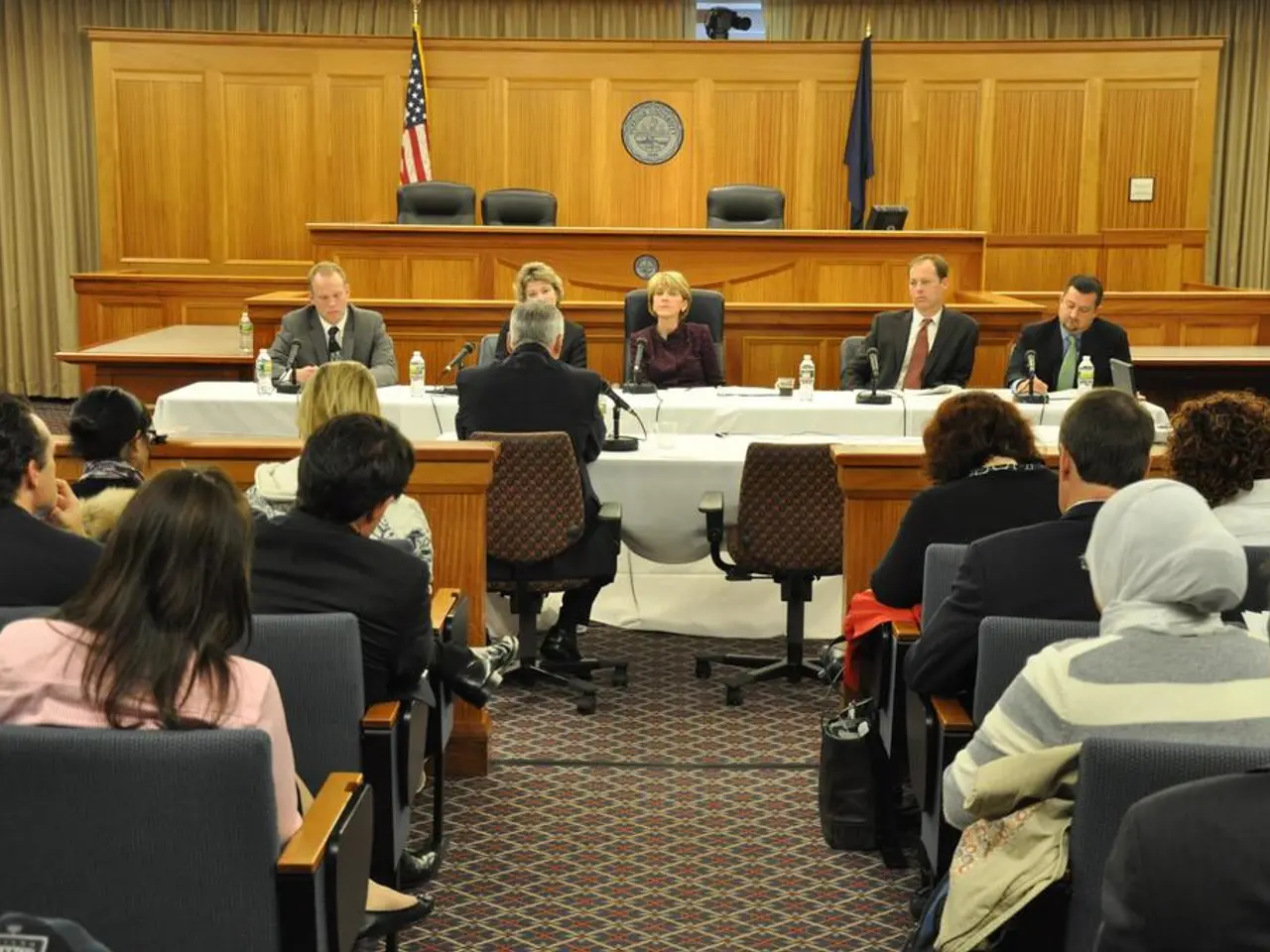Federal grant management now under political control following Trump's executive order, giving rise to concerns among researchers.
In a move that could have far-reaching implications for various sectors, President Donald Trump has signed an executive order aimed at giving political appointees control over billions of dollars in federal grants. The order, titled "Improving Oversight of Federal Grantmaking," seeks to align funding choices with the President’s policy priorities and restrict grants deemed "anti-American."
The order applies to federal agencies such as FEMA, the National Science Foundation (NSF), the National Institutes of Health (NIH), and the Centers for Disease Control and Prevention (CDC). Agencies have been directed to pause new funding opportunities until the administration installs new grant review processes controlled by these political appointees.
The order requires federal agencies to appoint officials responsible for reviewing federal funding opportunities and grants. This change could potentially disrupt ongoing grant periods for federal agencies. The Association of American Medical Colleges has stated that these changes will delay grant review and approval, potentially slowing "progress for cures and treatments that patients and families across the country urgently need."
One of the significant effects of this order is increased political interference. Appointees will assess whether research proposals align with administration priorities, potentially excluding research on topics like critical race theory, transgender issues, and diversity, equity, and inclusion initiatives, labeled as "far-left" and "offensive waste" by the order.
The order also undermines traditional peer review, with scientific panels relegated to advisory roles and political appointees having final say. This change, experts warn, will compromise scientific meritocracy, slow research, and introduce uncertainty in grant funding.
Recipients of grants may also face more complex grant management, with added requirements for specific authorizations before drawing down funds, which may hinder the efficiency of research projects.
Thousands of research grants at agencies like the NSF and NIH have already been terminated by the administration, including on topics like transgender health, vaccine hesitancy, misinformation, diversity, equity, and inclusion. Scientists argue that the order will cripple America’s scientific engine by placing control over federal research funds in the hands of people who are influenced by politics and lack relevant expertise.
The order's implications extend to various sectors, including emergency relief, public safety, and public health. For instance, FEMA's emergency relief grants could be affected by the order. The order's mandate for interagency coordination to avoid funding duplication could also potentially involve political oversight in FEMA's grant processes related to disaster preparedness and emergency innovations.
Experts predict that the order is likely to be challenged in court. Opposition to the order comes from the scientific and academic communities, who criticize the order for politicizing science and damaging U.S. leadership in research.
[1] The New York Times. (2020). Trump Plans to Politicize Science by Controlling Research Grants. [online] Available at: https://www.nytimes.com/2020/09/09/us/politics/trump-science-grants.html
[2] Science. (2020). Trump's plan to politicize science through grants. [online] Available at: https://www.sciencemag.org/news/2020/09/trump-s-plan-politicize-science-through-grants
[3] The Washington Post. (2020). Trump administration moves to politicize science with order on grants. [online] Available at: https://www.washingtonpost.com/science/2020/09/09/trump-administration-moves-politicize-science-order-grants/
[4] The Guardian. (2020). Trump's order to politicise science will have far-reaching consequences, experts warn. [online] Available at: https://www.theguardian.com/us-news/2020/sep/09/trump-order-politicise-science-grants-research-funding
[5] Nature. (2020). Trump administration to politicise science funding. [online] Available at: https://www.nature.com/articles/d41586-020-02654-5
- concerns have been raised about the potential impact of President Trump's executive order on various sectors, including science, medical-conditions, and education, due to the order's aim to align federal grant funding with political priorities.
- The directive applies to numerous federal agencies, such as the National Science Foundation (NSF), the National Institutes of Health (NIH), and the Centers for Disease Control and Prevention (CDC), mandating political appointees to review federal grants and funding opportunities.
- The Association of American Medical Colleges has expressed concern that this order will stall grant review and approval, potentially leading to delays in "progress for cures and treatments" required by patients across the country.
- Experts warn that the increased political interference in the grant review processes could compromise scientific meritocracy, slow research, and create uncertainty in grant funding, particularly for grants focused on topics like critical race theory, transgender issues, and diversity, equity, and inclusion initiatives.
- Agencies have been instructed to pause new funding opportunities and thousands of research grants at agencies like the NSF and NIH have already been terminated, leading scientists to argue that the order will stifle America's scientific engine by putting control of federal research funds in the hands of people with political agendas and lacking relevant expertise.






